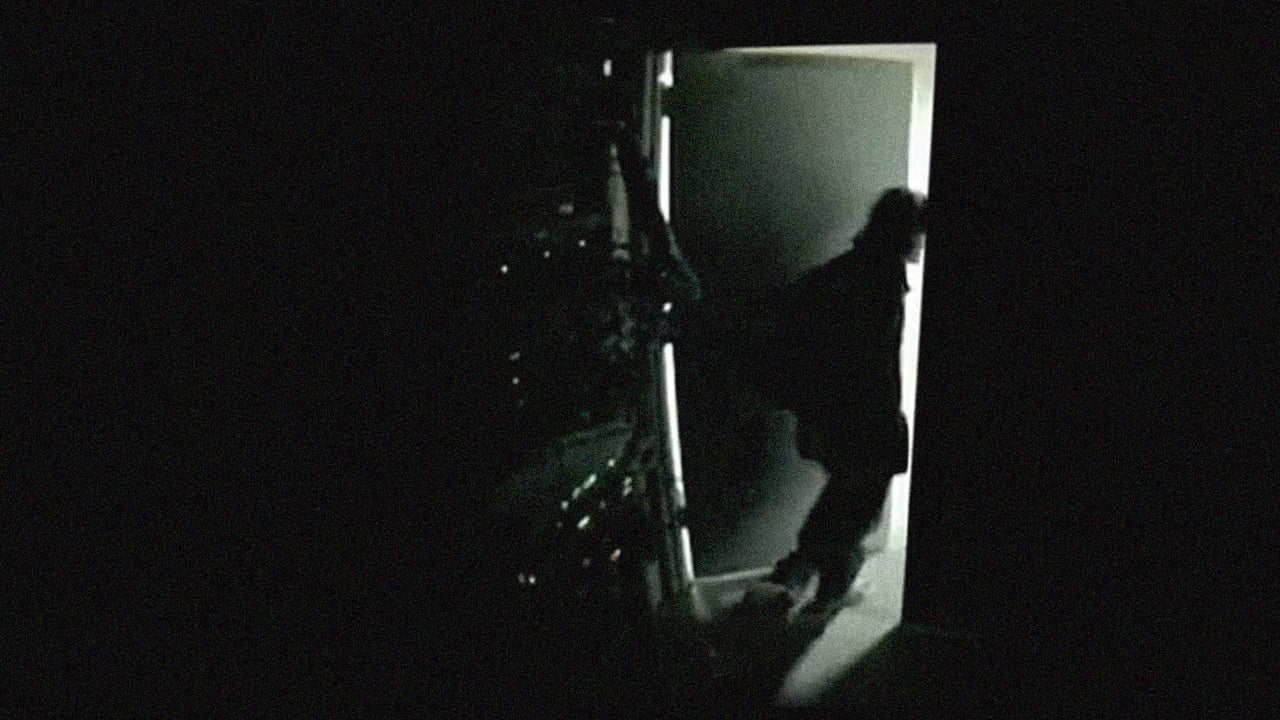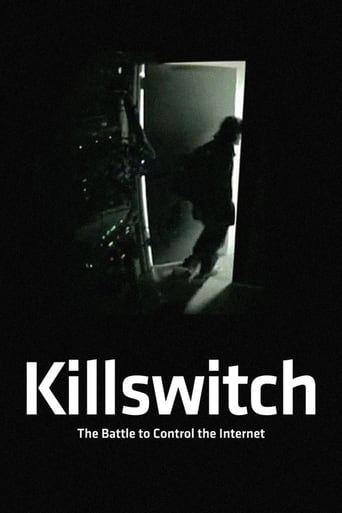

The Internet is under attack. This award-winning documentary explores the threat Internet censorship imposes on free speech, innovation, and democracy.While not an expert on the Internet, I feel I have a pretty god handle on technology. This film still taught me a few things about certain laws and regulations that affect how the online world works, and how much influence the MPAA has. (And I apparently forgot that Chris Dodd was involved.) The reason I can't give the movie a full endorsement is that it is so obviously one-sided. I tend to think it is on the right side, but even so, a great documentary should be a little bit more fair. There is no attempt at an argument about the violation of ownership rights.Although the focus is "censorship", we also dip into the idea of information monopoly (the Western Union and AT&T examples), and even the private funding of public campaigns, which seems like an entirely different issue. But for Lawrence Lessig, it is very much inter-related.
... View MoreWith so much controversy around net neutrality, there is no better time to watch this movie. It cleared up all of my questions about the issue and gave me some insight and history on the matter. I would recommend this movie to anyone who is an avid internet user, as it pertains to all of those who access the internet. While there has been a great deal of awareness raised, this movie is the next step to understanding the issue at hand. Understanding the legislation, politics, and business behind the issue of net neutrality is essential to keeping the internet free of corporate interests. Without information about net neutrality there is no way to contribute in the fight to preserve it.
... View MoreFor a relatively un-tech-savvy person such as myself, the thought of a documentary about net neutrality does not immediately come across as riveting. In fact, prior to the recent buzz over the FCC vote, there were many who were entirely unaware of the concept of net neutrality, and had little reason to invest themselves in its future. However, Killswitch manages to take the highly technical issues involved with the freedom of the Internet and allow an average citizen to not only understand them, but actually care about them. Though the film could have easily become a dry and uninteresting lecture or a preachy and overwrought battle cry, its balance and nuance make it so much more than that. Both informational and moving, the movie infuses its documentary with human narrative to personalize an issue that often is faced with dispassion. Not only does Killswitch teach viewers about the importance of net neutrality, it does so in a way that is engrossing and easily accessible to those with even the most limited background knowledge. To build a great documentary, it is essential to have a basis of reliable sources and plentiful information. Killswitch achieves this through its interviews with some of the most influential figures in the net neutrality scene. Tim Wu, professor at Columbia and author of The Master Switch, contributes knowledgeable commentary that expresses a soft-spoken intelligence and an obvious familiarity with the subject matter. Harvard professor Lawrence Lessig adds a humanizing touch as well through his emotional descriptions of Aaron Swartz, an important figure in the fight for Internet freedom and a personal protégé of Lessig himself. Finally, Northwestern professor Peter Ludlow relays his input with a passion that at times comes across as humorous but is never laughable. These three interviewees share the quality of being deeply qualified and extremely knowledgeable about the topic, but each provides a slightly different perspective to create a complex and thorough view of the matters at hand.The sheer scope of the film is also impressive, as it tackles a wide number of topics within the larger issue without feeling cluttered or disconnected. Each segment has a role to play in the discussion, and irrelevant material is scarce to nonexistent. The film delves into the history of Internet freedom, providing an essential background to today's debates. It relates the issue to the everyday audience member, who may be shocked to realize that a felony can be as simple as lying on a dating profile or even accessing Seventeen magazine's website at age seventeen. Even the story of Kim Dotcom, an Internet tycoon and owner of file-sharing site Megaupload, feels impressively relevant despite its semi-ridiculous nature. By including a variety of different stories to support the overall theme, Killswitch successfully keeps its narrative feeling fresh and creates an argument with a broad base of evidence.However, the true heart of Killswitch comes from the story of Aaron Swartz. An extremely intelligent young man with prodigious coding abilities, Swartz grew to become the face of the "hacktivist" movement through his use of computer skills to expose unfairness and fight inequality. His emotional story is recounted sporadically throughout Killswitch, peppered in with other aspects of the net neutrality discussion to create a cohesive arc. Though Swartz may be seen as a sort of martyr for the cause of net neutrality, the use of his story never seems manipulative or propaganda-esque. Rather, Swartz becomes the accessible face of a battle that often seems too complex and technical to truly fight. The moderated pathos of Swartz's narrative combines with other logical arguments to build a strong case for the protection of free Internet.Of course, one aspect of this film has contributed massively to its success and impact: timing. Killswitch largely started circulating through film festivals in late 2014, following FCC chairman Tom Wheeler's proposal in May to allow purchase of higher-speed broadband. The outrage at the highly discriminatory potential of this plan is what sparked much of the conversation about net neutrality on a public scale and provided the perfect platform for a documentary detailing the ins and outs of this widely misunderstood issue. With the FCC vote in February 2015 to approve stronger protections for equal Internet access, Killswitch could not have come at a more relevant time. Whether this is due to meticulous planning or incredible luck is unclear, but it is obvious that Killswitch is an integral film for this crucial deciding moment in the future of the web. By providing viewers with a clear picture of the issue at hand and delivering a rousing call to action, Killswitch has the power to inspire generations to continue to work for freedom of information and, in the words of Charlie Chaplin as employed in the film's stirring finale sequence, "fight for a world of reason."
... View MoreKillswitch is an excellent film, managing to be both informative and entertaining, with superb pacing and a strong voice.As "Food Inc." and "Inside Job" are to the food and financial industry, "Killswtich" is to the Internet. Arguing vociferously for a free and open internet, it pulls no punches on Republicans or Democrats, going after politcians and media giants with vengeance. Despite this fact, none of the film seems heavy handed, perhaps this is because soft-spoken sage, Harvard Constitutional Law Professor carries the film with an intellect that is difficult to argue against. The way the film is able to capture the intricate mentor/mentee relationship between Internet prodigy Aaron Swartz and Lessig takes the film to new heights. Without giving away the ending, let's just say the director took me on an emotional roller-coaster, that left me inspired by the end of the film. If you are looking for the film that successfully humanizes the Internet and will make you feel like doing whatever is necessary to protect it, this film is for you. I give it a 10/10.
... View More